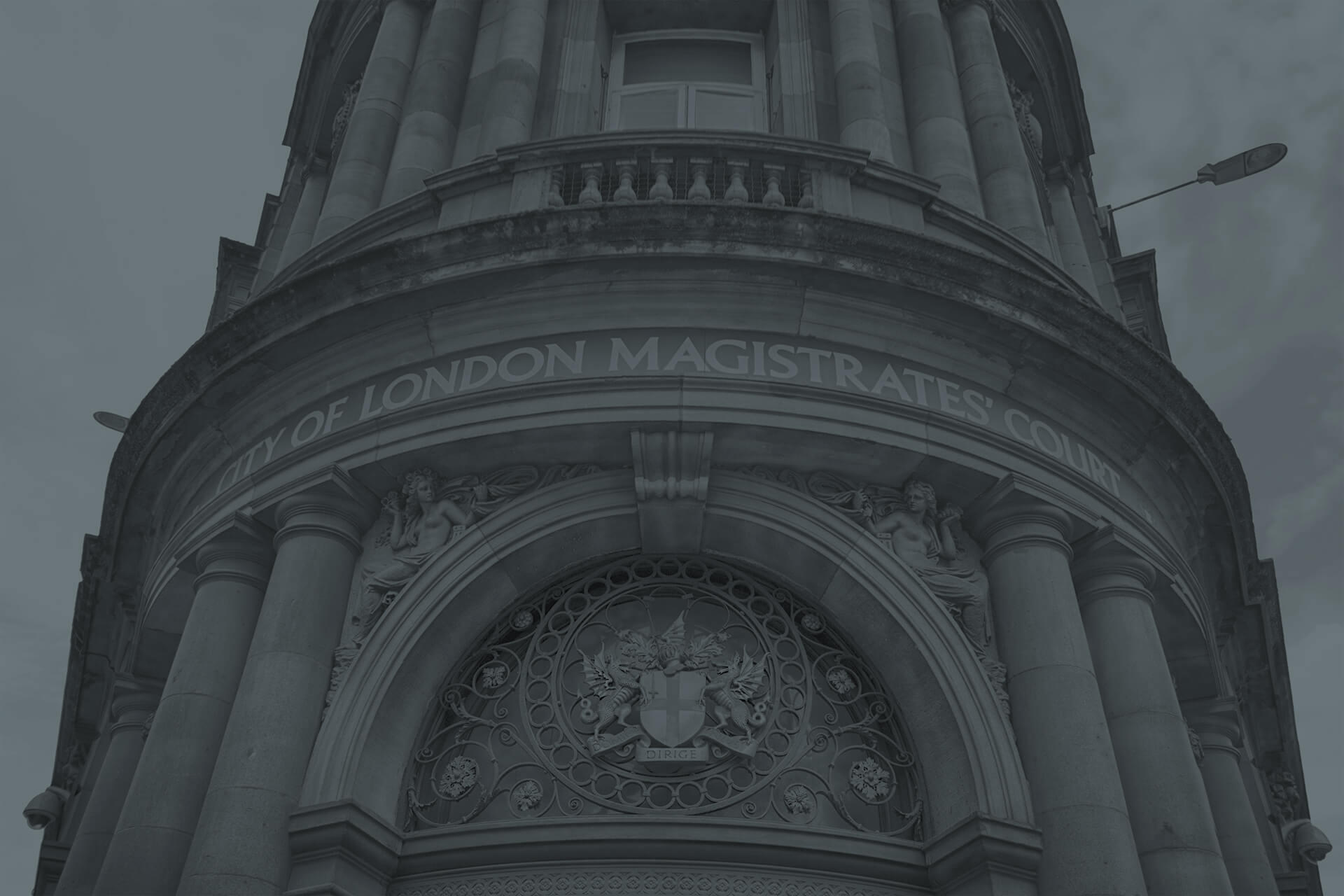Send your enquiry.
Contact us for a free, initial no obligation consultation.
"*" indicates required fields
Your information is safe and treated in accordance with our Privacy Policy
Released Under Investigation what happens next
Since the Policing and Crime Act was implemented in April 2017, our criminal defence solicitors have seen a rise in the number of people being “released under investigation’. This is a controversial practice because it places you, as the accused, in a state of limbo.
If this has happened to you, please read on to find out exactly what this means, and what will happen next. We have put together a list of frequently asked questions to help you understand your position in more detail.
Released Pending Investigation
If you have any further questions, or you need expert legal representation, we are here to help. For a free initial enquiry, contact us now at Ashmans Solicitors.
We are available to take your call 24 hours a day, 7 days a week. In some cases, Legal Aid is available.
What does it mean to be released under investigation?
Being RUI = released under investigation means that you are suspected of a criminal offence and that the investigation into your alleged criminal activity is ongoing. You have not been charged, and nor has your case been passed to the Crown Prosecution Service (CPS). But you are not yet ‘out of the woods’, because the police are still suspicious that you have committed a criminal offence.
Typically what happens is that you are interviewed under caution by the police, but there are not sufficient grounds to charge you. However, the police do not want to dismiss you as a suspect just yet. Instead, they want more time to make inquiries, before deciding whether or not to refer your case to the CPS. The police, therefore, choose to release you under investigation. This allows you to leave the police station, but the police can seize your personal property as evidence.
You will be told about the outcome of the investigation ‘at some point in the future’. This creates a great deal of uncertainty because you do not know if the police will eventually charge you, or drop the case against you. To make matters worse, the investigation process has no maximum time limit, meaning you could be kept waiting for weeks, months or years before you discover the outcome. Having the threat of prosecution hanging over your head can be very unnerving, and may even damage your ability to earn an income.
Why have I been released under investigation?
You have been released under investigation because the police believe you may have committed a criminal offence but do not have enough evidence to charge you. They cannot hold you in custody, so they release you while they conduct further investigations.
You can be RUI for alleged offences that are both minor and serious. In fact, there are cases in which suspects accused of rape and grievous bodily harm (GBH) have been released under investigation.
If you have been arrested and interviewed under caution, the police have the option of releasing you under conditional bail instead. This means that you can leave custody but must abide by certain conditions, such as living at a certain address and avoiding contact with named people. However, bail is currently restricted to 28 days, so the police tend only to release suspects on bail if they are concerned that:
- You will commit another offence
- You will fail to turn up at court
- You will intimidate witnesses
- You will try to obstruct the course of justice
Otherwise, it is likely that you will be RUI rather than released on bail.
What is the difference between being released on bail and released under investigation?
Being released under investigation is different from being released on bail because it has no time limits or conditions attached to it.
For example, when you are released on bail, you may be placed under a curfew. You will also be told to return to the police station on a set date. When you do, the police may decide to extend your bail. As of April 2017, bail can only last for a total of 28 days (bar some exceptions).
Because there is now a time limit on bail, police officers often prefer to release suspects under investigation instead. There are no deadlines in effect so you can remain a suspect under caution indefinitely.
When you are released pending investigation, you should not contact anyone linked to your case, as this could be deemed witness intimidation and/or perverting the course of justice. However, the police cannot impose other conditions, such as a curfew. Also, you do not have to report to the police station at an agreed date and time.
How long does released under investigation last?
Unfortunately, there is no straightforward answer to this question. The investigation may take weeks, months or even years. It depends on various factors, including the case’s complexity, the availability of witnesses, and station resources.
This makes things very difficult, as your life will effectively be put on hold while the police continue with their investigation. This can make for an anxious and frustrating wait.
If you instruct our criminal defence solicitors, we can remain in contact with the police, requesting regular updates on the progression of your case.
Will I have to return to the police station?
You may have to return to the police station for further questioning if the police ask you to. If this happens, please ask one of our criminal defence solicitors to accompany you. This is very important because our criminal defence solicitors can advise you what questions to answer, and how to answer them. This ensures you do not accidentally damage your case.
You may also be recalled to the police station if the police want to formally charge you. If so, you will be given a charge sheet and a date to attend court. When this happens, it means the investigation against you has concluded and your case has been passed to the CPS.
Police under investigation
Otherwise, being RUI is not like being released on bail. You will not have to return to the police station on a particular date, at a particular time. You will only have to attend the police station for additional interviews, or if there are developments in your case. If neither of these applies, you will not have to return to the police station.
You will be told by the police if you need to return to the police station for any reason. It is sensible to comply with this request, although as mentioned above, please speak to our criminal defence solicitors first.
Can the police keep my personal property during the investigation?
Yes, the police can keep your personal property, if it is relevant to the investigation. This might include electrical devices, such as phones, laptops and tablets. It might also include documents, clothing, vehicles and equipment. The police can send these items for forensic testing if they deem it necessary.
You might wonder exactly how long the police will keep your personal property. Again, there is no clear answer to this question. The police can keep your belongings for as long as they require them. This could be until they have finished investigating a particular item, or until the investigation has concluded and the case against you has been dropped.
Unfortunately, this can take a considerable amount of time, especially if forensic testing is carried out. Indeed, it can take around three months to analyse a mobile phone. This can be very disruptive, particularly if the police have seized an item that you normally require for work.
If you are keen to have your property returned, we can request that the process is expedited. We can also regularly ask for updates, as the police may no longer need a certain item – but may have failed to inform you.
What happens when the investigation ends?
When the police conclude their investigation, one of two things will happen:
- The case against you is dropped, meaning you are no longer under investigation
- The police formally charge you and pass your case to the Crown Prosecution Service
You will know if you have been charged because you will be recalled to the police station and arrested. Or, you will receive a ‘postal requisition’. This is a letter sent to your home address, telling you what crime (or crimes) you have been charged with, and what date you must attend court.
How am I told what happens next?
If the investigation into your alleged criminal activity is discontinued, the police will call you and tell you the good news.
On the other hand, if the police intend to formally charge you, you will find out in one of two ways. Either, you will receive a phone call from the police, or you will receive a letter through the post.
If you receive a phone call from the police, you will be asked to attend the police station. Once at the police station, you will be formally charged and given a charge sheet. This will tell you the date and time you need to attend court. You need to keep this appointment, or a warrant could be issued for your arrest. However, please do not attend court without legal representation. Instead, contact our criminal defence solicitors as soon as you are charged.
If you get a letter through the post, then you have received a postal requisition. This letter is from the Crown Prosecution Service and is a summons, telling you where and when to attend court. Occasionally, you will receive a phone call first, telling you to expect a postal requisition. Ordinarily, however, a postal requisition arrives without any warning. We advise that you contact our criminal defence solicitors as soon as you receive this letter.
What happens if I miss the postal requisition?
While the investigation is underway, you might move house or go on holiday. If so, you might miss the postal requisition. If you fail to attend court on the required date, a warrant can be issued for your arrest. It is therefore important to update the police if you move address or you intend to be away from home for a prolonged period of time.
Can I travel abroad if I am released under investigation?
Yes, you can travel abroad if you are released under investigation. It is a good idea to inform the police if you plan to travel outside the country or if you plan to be away from home. This is because you may miss any requests from the police to attend the station for further questioning. You may also miss a postal requisition if the letter is delivered to your address in your absence.
Is the law different if I am under 18?
You can still be released under investigation if you are under the age of 18. However, if you are charged with a criminal offence, the law is different. This is because you are considered a minor. When you are under 18, your first hearing will usually be at the youth court. You may also receive a youth sentence, which will be less severe than an adult sentence.
Why is being released under investigation controversial?
Being released under investigation is controversial because there are no time limits or restrictions in place. This leaves suspects unsure of their status. They cannot know whether the case against them will be dropped, or whether charges will be pressed. Instead, they must patiently await the outcome of the police investigation, which could in theory take years.
Ironically, it is for these reasons that bail has been restricted to 28 days. In the past, police could ask suspects released on bail to return to the station on a set date. At this point, their bail could be extended. This could go on indefinitely, putting suspects in a repetitive cycle whereby they had to continuously return to the police station – only to be released on bail once again. This practice came under criticism, as suspects found it was very disruptive, and having to wait for the police investigation to conclude was agonising.
That is why the law changed in April 2017, restricting bail to 28 days. However, being released under investigation has effectively become the new unconditional bail, as there are no deadlines in force. Additionally, the police cannot assign any conditions to RUI, as they can with bail. This potentially put victims as risk, because the accused can be RUI and can freely access their victims.
Because of these concerns, the laws surrounding bail and being under investigation but not charged are under review.
What should I do if I’m charged?
When you discover that you have been charged, please get in touch with us at Ashmans Solicitors straightaway. We can guide you through the next steps, building your defence and representing you in court. We know this is a frightening time, but we are highly experienced criminal defence solicitors and will work hard to secure the best possible outcome.
For a free initial enquiry, call us on 0333 009 6275. We are available to take your call 24 hours a day, 7 days a week.
You can also email us on enquiries@ashmanssolicitors.com or complete our Free Online Enquiry Form and we’ll be in touch soon.
How long will the investigation take?
Unfortunately, there is no straightforward answer to this question. The investigation may take weeks, months or even years. It depends on various factors, including the complexity of the case, the availability of witnesses, and station resources.
Can the police keep my personal property during the investigation?
Yes, the police can keep your personal property, if it is relevant to the investigation. This might include electrical devices, such as phones, laptops and tablets. It might also include documents, clothing, vehicles and equipment. The police can send these items for forensic testing if they deem it necessary.
Can I travel abroad if I am released under investigation?
Yes, you can travel abroad if you are released under investigation. It is a good idea to inform the police if you plan to travel outside the country, or if you plan to be away from home




